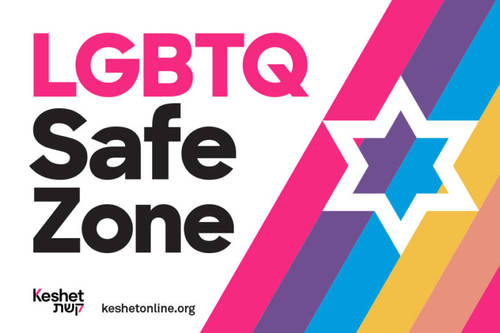Temple Beth-El is proud to partner with the Jewish Community Federation of Richmond and the Richmond Rabbinical Council to share inspirational and thought provoking messages for the Hanukkah Holiday. Before each night of Hanukkah, we will share with you a message from one of our community’s congregational rabbis to enrich your celebrations. Be on the lookout for Rabbi Knopf’s message, which will be on the fifth night. Just as the menorah symbolizes unity and diversity, we celebrate the fact that our community is blessed with a diverse array of wonderful synagogues as well as with a Federation dedicated to bring us closer together.
"The Heart Repair of Hanukkah: Blessing Each Other's Light"

Rabbi Michael Knopf
Temple Beth-El
Compared to many other Jewish holidays, Hanukkah is relatively simple. Sure, there are many lovely customs — latkes, dreidels, sufganiyot, gelt, and the like — but the essential practice of the festival is lighting the menorah each night. And, just as we do when we perform other mitzvot (commanded ritual acts), when we kindle the Hanukkah lights, we recite a blessing.
Unique, however, to this particular mitzvah is that we are not only obligated to recite a blessing over candles we light ourselves, but also when we see someone else’s kindled menorah (Babylonian Talmud, Shabbat 23b). In other words, if I am driving down Monument Avenue, and I see a lit menorah in someone’s window, I am supposed to recite the blessing, “...who made miracles for our ancestors in those days, in this season.” This is the case even if it’s the home of a complete stranger, even if I hadn’t lit my own menorah, and even if I wasn’t planning on lighting candles at all. There is no other mitzvah like this, in which we recite a blessing over a deed done by another person!
It is this distinct feature of Hanukkah that leads Rabbi Shlomo Carlebach to identify Hanukkah as the holiday of heart purification. On Hanukkah, we are asked to celebrate our neighbors, to bless the work of their hands. We are given an opportunity to set aside ego, narcissism, and self-congratulation, taking — to borrow language from Rabbi Abraham Joshua Heschel — our minds “out of the narrowness of self-interest.”
On Hanukkah, in other words, we are invited to see our fellow human beings from God’s vantage-point, a vantage-point of unconditional and infinite love, of parental pride that is equally bestowed on each and every beloved child.
Hanukkah, then, according to Reb Shlomo, is an annual opportunity to repair this defect in our hearts, to realize that we are all of us children of the same Parent; siblings, who were not brought into being to compete against each other or to tear each other down, but rather to celebrate one another and lift each other up. It’s no coincidence that the heroes of the Hanukkah story, the Maccabees, are kohanim, priests. Rabbinic tradition teaches that the defining characteristics of the first High Priest, Aaron, were that he “loved peace and pursued peace, loved people and brought them close to Torah” (Pirkei Avot 1:12). On Hanukkah, we celebrate the triumph of Aaron’s children, the victory of peace over violence, of love over hate, of generosity over meanness, in the hopes that it will inspire us, too, to embrace and practice those qualities.
Today, it is far too common to see people building themselves up by tearing others down. Hanukkah urges us to make a different choice, to see the light that others are kindling in the world and offer our blessings. If we can practice doing this for eight nights, maybe, just maybe, it will become habitual. And with hearts so repaired, the repair of the world will not be too far behind. Hanukkah same’ah!




